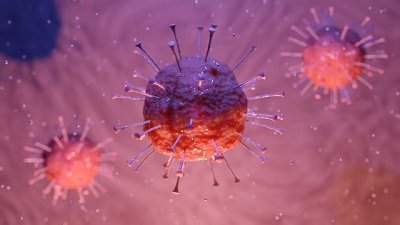Can Genital Herpes Cause Recurrent Prostatitis?
Genital herpes is a sexually transmitted disease caused by the herpes simplex virus (HSV). Its main symptoms are blisters and ulcers on the genital area accompanied by significant pain. This virus has a vital latency characteristic; once it invades the human body, it settles in the nerve ganglia and can easily reactivate when the immune system weakens.

Prostatitis, on the other hand, is an inflammatory disease of the prostate tissue. Its causes are complex, involving bacterial infection, non-bacterial inflammation, immune abnormalities, neuroendocrine disorders, and other factors. Patients with prostatitis often suffer from frequent urination, urgency, painful urination, and pain in the perineal area, severely affecting their quality of life.
Many men are often puzzled when facing these two diseases: can genital herpes cause recurrent episodes of prostatitis? This is not only a medical issue but also an important topic concerning the quality of life and mental and physical health of many men.
So, can genital herpes lead to recurrent episodes of prostatitis?
From a medical perspective, the answer is yes.
On the one hand, genital herpes virus infection may affect the functioning of the immune system. When the virus invades the human body, the immune system activates defense mechanisms to combat the virus. However, long-term immune stress may lead to immune dysregulation, weakening the immune system's protective role over the prostate tissue, thus increasing the risk of recurrent prostatitis.
On the other hand, the presence of the genital herpes virus may cause the spread of local inflammatory reactions. The genital area is adjacent to the prostate, and the inflammation caused by the virus may spread to the prostate, leading to persistent or recurrent prostate tissue inflammation.
However, it is essential to clarify that the recurrence of prostatitis is not solely attributed to genital herpes. Many other factors also play a significant role.
For example, poor lifestyle habits. Prolonged sitting, holding urine, excessive drinking, smoking, and overactive sexual life or prolonged abstinence can all affect the blood circulation and normal function of the prostate, leading to recurrent prostatitis.
Bacterial infection is also a common cause. Certain specific bacteria, such as Escherichia coli and Staphylococcus aureus, can retrogradely infect the prostate through the urethra. If the treatment is not thorough, it can easily cause recurrent inflammation.
Psychological factors are also not to be ignored. Excessive work pressure, anxiety, and depression can affect the balance of the neuroendocrine system, thereby negatively impacting the function of the prostate and making prostatitis more likely to recur.
In conclusion, there is a specific correlation between genital herpes and prostatitis; genital herpes can lead to recurrent prostatitis. However, it is not the sole culprit.
The recurrence of prostatitis is the result of multiple factors working together. For patients, understanding these factors, actively cooperating with the doctor's treatment, and adjusting their lifestyle and mindset are crucial to overcoming the disease and restoring health.
In cases of prostatitis and genital herpes, it is necessary to go to the hospital for an examination; the hospital will take herpes fluid for viral testing to determine whether it is herpes. Depending on the condition, doctors generally use medication for treatment; if antibiotics are ineffective for prostatitis, herbal medicine Diuretic and Anti-inflammatory Pill has shown unique effects, effectively killing various bacteria and pathogens and alleviating discomfort.
For patients with genital herpes prostatitis, regular follow-up exams are recommended to monitor changes in the condition, and adherence to medical advice for standardized treatment and management is crucial. Additionally, maintaining personal hygiene, keeping the local area clean and dry, and avoiding excessive fatigue and mental stress can help reduce the occurrence and recurrence of symptoms.
You may also be interested in:
Genital Herpes May Cause Prostatitis, Why?



